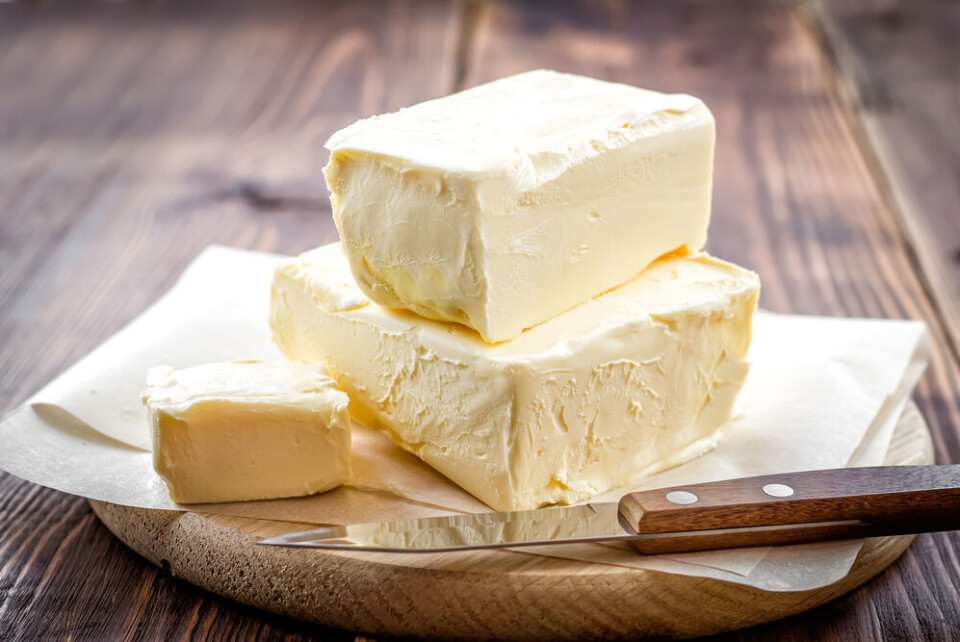-
Learning French: when and why do we say copains comme cochons?
The story behind this phrase actually has nothing to do with pigs
-
Learning French: the origins and meaning of il n'y a pas le feu au lac
Say this to someone who needs to slow down and relax (maybe by a lake)
-
Learning French: when to capitalise 'Français' and other nationalities
The rule is easier to understand than it may at first seem
Speak butter French: six expressions around the word beurre
See if you can guess the meaning of these phrases just from their English translations

Butter is a mainstay in French cuisine and its importance has spread into the culture and language.
In 2016 Emmanuel Macron responded to a farmer who asked if he was vying for the presidency by saying: Je ne suis pas là pour beurrer des tartines (I am not here to butter bread).
Inspired by the 1963 film Tontons Flingueur, this line was a clear message: ‘I will run for president’.
Below are six more expressions involving the word butter.
We give you their meaning and the context in which to use each so you can seamlessly drop a butter-based saying into your French conversations.
Vouloir le beurre et l'argent du beurre
“Wanting the butter and the money of the butter”
This saying appeared at the end of the 19th century.
It is very similar to ‘You cannot have your cake and eat it’.
Read more: Do you know the English equivalents of these 5 French expressions?
It refers to the fact that it is impossible to both keep the butter and get money for selling the butter: you must choose one or the other.
For example, if someone buys a very fast car and then complains about the amount of petrol it uses, you could tell them: On ne peut pas avoir le beurre et l’argent du beurre.
Tu n’as pas inventé le fil à couper le beurre
“You did not invent the wire to cut butter”
One of butter’s main properties is that it is soft - at least when it has not been in the fridge.
It is easy to cut butter and it would not take a lot of intelligence to come up with a utensil to cut butter with, therefore this expression refers to someone who is dim or thick.
The English equivalent is ‘you are not the sharpest tool in the shed’.
For example, if you see someone struggling to do something easy, you could say il n’a pas inventé le fil à couper le beurre, lui (he did not invent the wire to cut butter).
Compter pour du beurre
“Count for butter”
If you have just learnt a new card game, you may hear someone announce la première partie compte pour du beurre (‘the first round counts for butter’).
In this context, it means that the first round does not count. Generally, it is used to refer to something that has no importance.
Though the phrase became commonly used in the 19th century, its meaning originates from Roman times.
Then, butter was rarely used in cooking and was seen as a cheap, inferior alternative to olive oil, which was seen as noble.
That is why butter means something insignificant here despite how much it is loved nowadays.
Avoir un œil au beurre noir
“Having a black butter eye”
The loser of a fight often gets an œil au beurre noir, which means a black eye.
This expression, which is the most common to refer to a black eye, is a play on words.
It refers to an œuf poché au beurre noir (a black butter poached egg).
Eggs are poached by cooking them in water. They are then sometimes fried in butter, which can turn a darker colour if cooked for too long. The butter then colours the white of the egg, hence the expression.
The words œuf and œil are similar because they are both spelt with an e-dans-l'o, an e in the o. This letter is used to denote the sound the speaker should make: it should be pronounced almost an ‘a’ sound.
Mettre du beurre dans les épinards
“Putting butter in the spinach”
If you are improving your financial situation, you can say je mets du beurre dans les épinards.
For example, if you have a part-time job and you are asked why you do it on top of your full-time job, you can respond je mets du beurre dans les épinards.
It likely comes from the idea that putting butter in spinach is an expensive but effective way of making it more delicious. Being able to put butter in your spinach therefore means that you are in a comfortable financial situation.
Read more: French expressions about money: Should I use thunes or argent?
Avoir des mains de beurre
“Having butter hands”
In English, it is butter fingers rather than hands, but the meaning is the same.
The expression is used to describe someone who often drops things and is not good with their hands. It comes from the fact that butter is either soft so not strong enough to catch with, or slippery so difficult to grasp.It is mostly used in Normandy.
Read more
More French words and phrases with no real equivalent in English
Le? La? Why learning the gender of a noun makes life in France easier
Speak like a local: seven phrases specific to the north of France
























